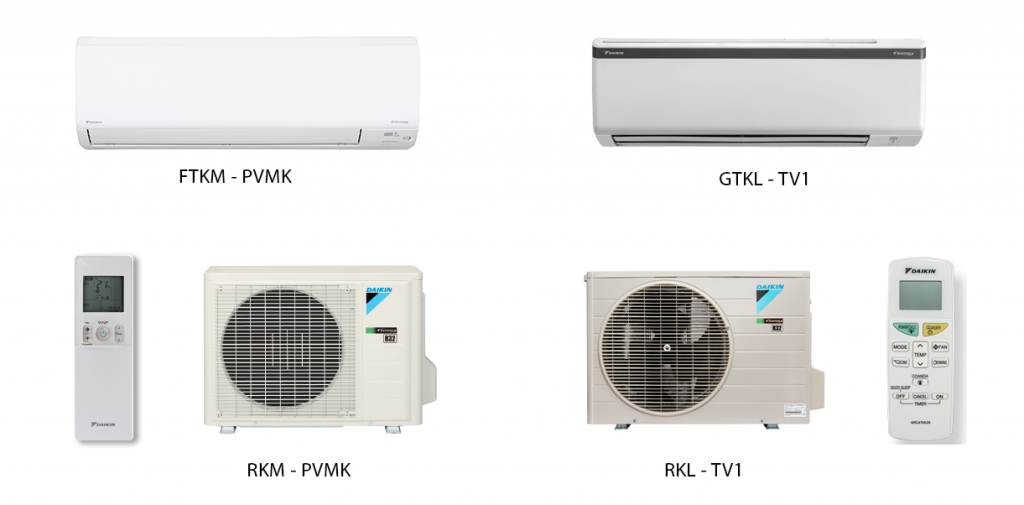Daikin Industries, the worlds leading manufacturer of heating, cooling and refrigerant products, announced in 2015, the launch of GCCs first high ambient air conditioning system to use R-32, an alternative refrigerant to R-22 with zero ozone depletion potential and lower global warming impact than R-410A refrigerant.
The unique combination of R-32 and inverter technology in the new Daikin split range, FTKM/FTXM series, offers end-users the opportunity to benefit from class-leading energy efficiencies, with excellent cooling capacity and high indoor climate comfort, while lowering the environmental impact.
Daikin is renowned for its pioneering approach to product development, with more than 90 years experience in the design and manufacture of air conditioning technologies. As part of its serious commitment towards the environment, Daikin aims at developing systems that improve comfort levels while having lower environmental impact. Refrigerant choice is a key factor in the drive to maximise energy efficiency and to minimise the global warming impact of systems, said Michel Farah, director of Corporate Environment and Social Responsibility.
Daikins new Inverter Split Wall-Mounted leads the way in achieving up to 70% energy reductions with an Energy Efficiency Ratio (EER) of 13.3 at T1 condition compared to the traditional split AC. These energy efficient feature makes it the most energy efficient air conditioner of its type available in the GCC market, and be the best solution for retrofit projects and ESCO companies. The product has received multiple awards in acknowledgement of its superior environmental performance, including Product of the Year Energy Management at the 2018 MENA Green Building Awards and Best HVAC Innovation at the RetrofitTech UAE Summit & Awards 2018.
R-32the result of continued research on refrigerantsis a next generation gas that addresses a range of environmental considerations. It allows the Daikin Inverter AC to maximise energy efficiency while minimising global warming impact with zero ozone depletion potential and up to 80% less CO2 emission than R-410A.
Daikin MEA vice president, Tuna Gulenc, added: As part of our environmental commitment to society, we believe it is the manufacturers duty to advise the market and develop sustainable solutions that have practical applications in reducing energy consumption and CO? emissions. People in Japan, Europe, China, Australia and other countries, already enjoy the benefits of Inverter technology and here at Daikin MEA, we believe the Middle East will soon follow. The use of Inverter technology in HVAC units helps each citizen to contribute to the regional efforts to reduce environmental impact.
Daikin Industries Ltd. had given worldwide free access to 93 patents, to encourage companies to develop and commercialise air conditioning, cooling and heat pump equipment that use HFC-32. This action is aimed to encourage manufacturers worldwide to adopt sustainable comfort cooling and heating technologies that use HFC-32, a next-generation refrigerant with a lower global warming impact than commonly-used refrigerants.
The global market demand for R-32 room air-conditioners have reached 27 million units where Daikin share has exceeded 10 million units since 2012 in more than 50 countries. This has contributed to 47 million tons of carbon emission reductions.
Following GCC, Daikin had also launched successively the first R-32 Inverter split designed specifically for the African market. The new range GTKL-TV1 series offers powerful and efficient cooling performances with the best built-in voltage protection. It can withstand the widest voltage range from 160-265V for an AVS free operation. Anti-corrosion protection is offered as standard and the robustness of this unit has been designed for Africa by reinforcing the product structure and packaging.




